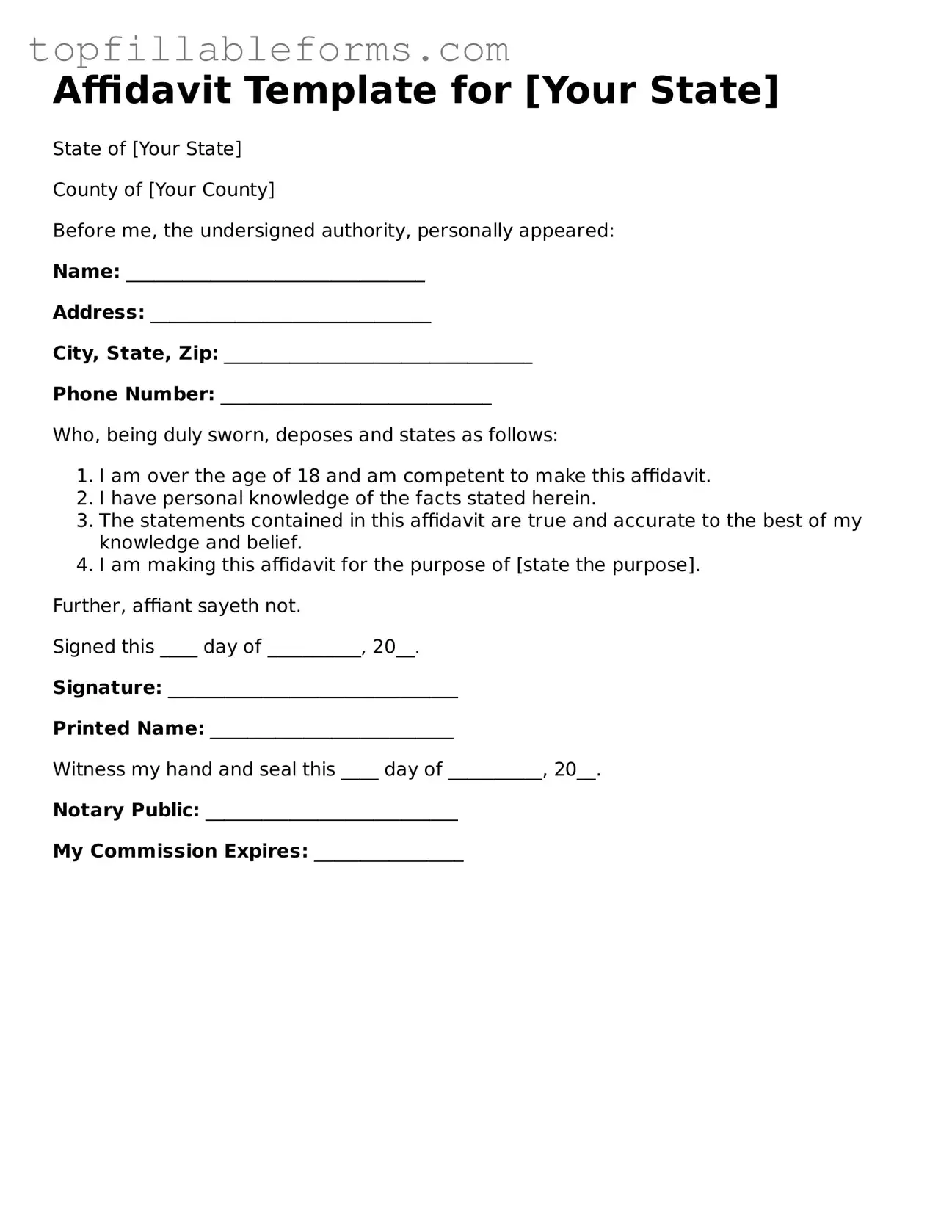Free Affidavit Form
An affidavit is a written statement confirmed by oath or affirmation, often used as evidence in legal proceedings. This document serves as a vital tool for individuals to present facts and assertions in a formal manner. Understanding the components and purpose of the affidavit form is essential for anyone navigating the legal system.
Open Affidavit Editor Here

Free Affidavit Form
Open Affidavit Editor Here
Finish the form now and be done
Finish your Affidavit online by editing, saving, and downloading fast.
Open Affidavit Editor Here
or
▼ PDF File
